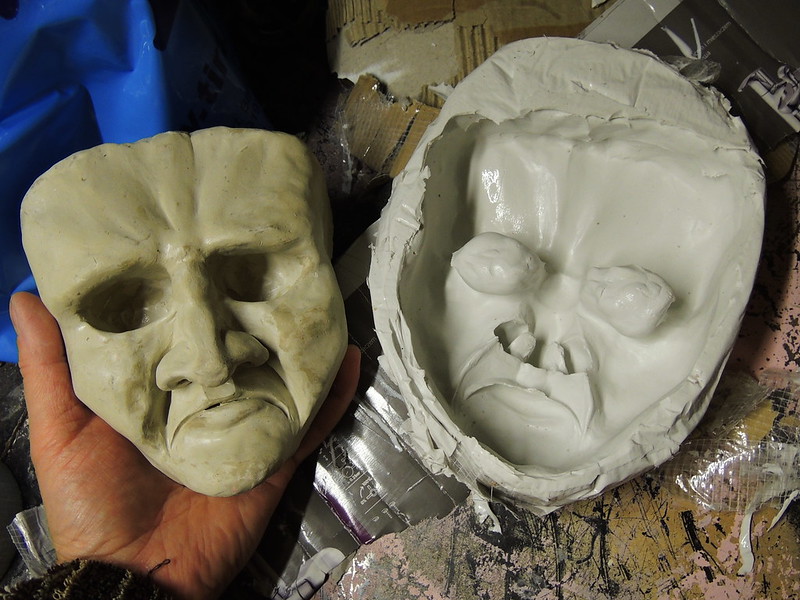Silicon latex mould of Twitr_janus' face next to the model

Corrugated cardboard is your friend
To make a sturdy mould, cardboard from old boxes and tape are pretty unbeatable.Here, the original clay model was placed on a cardboard sheet and used as a template to create a baseboard for the mould to add walls onto.


Making the mould walls
Corrugated cardboard can be made to create a flexible mouldable surface, that is rigid in one plane, and flexible in another. This can be done by pulling it over a corner to break the rigidity. The corrugations need to be in line with the edge you are using.The effect of this can be seen below (left). Once so treated, the cardboard can be shaped fairly easily to create moulding walls. By making small cuts, along an edge fold, tabs can be made to anchor these walls to the baseboard (below, right)


To make the mould, the baseboard and walls were fixed with gaffer tape, inside and out




Making the mould
This mould was made with a proprietary silicon moulding agent from the legendary sculpture supplier Alec Tiranti http://www.tiranti.co.uk/subdivision_product_list.asp?Subcategory=51&Subdivision=174Be warned, the setting agent is evil. Treat with extreme caution if you like wildlife. It has a rather scary disclaimer, so responsible disposal is a good idea!


If you pour latex straight, you need to make sure you have enough of it. Here, the latex was built up in three layers to save cost. This allows you to add latex to the parts that protude.
The latex was left for 2 days to set completely. Then the cardboard was cut off and the mould eased off the model.




The mould will have rough edges. These were trimmed with scissors to give the final mould - Voila!

Very cool and very inventive. Never would have thought of using corrugated cardboard.
ReplyDeleteThanks - corrugated cardboard is cheap and cheery, but actually very strong and easy to mould. It will stay vertical even if you bend it round more complex shapes (that is looking down it's complex)
ReplyDelete